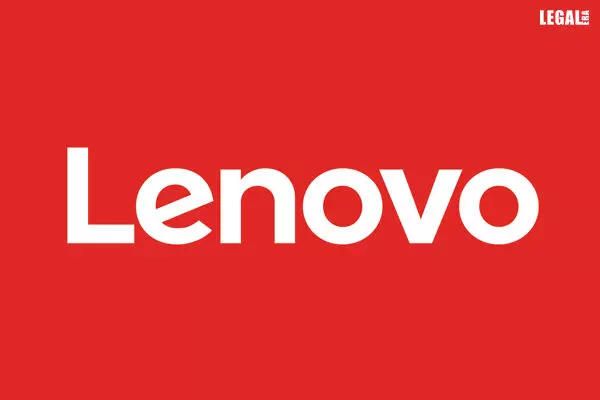- Home
- News
- Articles+
- Aerospace
- Agriculture
- Alternate Dispute Resolution
- Banking and Finance
- Bankruptcy
- Book Review
- Bribery & Corruption
- Commercial Litigation
- Competition Law
- Conference Reports
- Consumer Products
- Contract
- Corporate Governance
- Corporate Law
- Covid-19
- Cryptocurrency
- Cybersecurity
- Data Protection
- Defence
- Digital Economy
- E-commerce
- Employment Law
- Energy and Natural Resources
- Entertainment and Sports Law
- Environmental Law
- FDI
- Food and Beverage
- Health Care
- IBC Diaries
- Insurance Law
- Intellectual Property
- International Law
- Know the Law
- Labour Laws
- Litigation
- Litigation Funding
- Manufacturing
- Mergers & Acquisitions
- NFTs
- Privacy
- Private Equity
- Project Finance
- Real Estate
- Risk and Compliance
- Technology Media and Telecom
- Tributes
- Zoom In
- Take On Board
- In Focus
- Law & Policy and Regulation
- IP & Tech Era
- Viewpoint
- Arbitration & Mediation
- Tax
- Student Corner
- AI
- ESG
- Gaming
- Inclusion & Diversity
- Law Firms
- In-House
- Rankings
- E-Magazine
- Legal Era TV
- Events
- News
- Articles
- Aerospace
- Agriculture
- Alternate Dispute Resolution
- Banking and Finance
- Bankruptcy
- Book Review
- Bribery & Corruption
- Commercial Litigation
- Competition Law
- Conference Reports
- Consumer Products
- Contract
- Corporate Governance
- Corporate Law
- Covid-19
- Cryptocurrency
- Cybersecurity
- Data Protection
- Defence
- Digital Economy
- E-commerce
- Employment Law
- Energy and Natural Resources
- Entertainment and Sports Law
- Environmental Law
- FDI
- Food and Beverage
- Health Care
- IBC Diaries
- Insurance Law
- Intellectual Property
- International Law
- Know the Law
- Labour Laws
- Litigation
- Litigation Funding
- Manufacturing
- Mergers & Acquisitions
- NFTs
- Privacy
- Private Equity
- Project Finance
- Real Estate
- Risk and Compliance
- Technology Media and Telecom
- Tributes
- Zoom In
- Take On Board
- In Focus
- Law & Policy and Regulation
- IP & Tech Era
- Viewpoint
- Arbitration & Mediation
- Tax
- Student Corner
- AI
- ESG
- Gaming
- Inclusion & Diversity
- Law Firms
- In-House
- Rankings
- E-Magazine
- Legal Era TV
- Events
London’s High Court Orders Lenovo must pay $138.7 million for InterDigital Patents

London’s High Court Orders Lenovo must pay $138.7 million for InterDigital Patents
London’s High Court has ordered China’s Lenovo Group Ltd to pay U.S. technology firm InterDigital Inc $138.7 million for a license for its portfolio of telecommunications patents, in the latest round of a long-running dispute.
InterDigital had filed the lawsuit against Lenovo in 2019 over the terms on which Lenovo should take a license of its patents which are essential to 3G, 4G and 5G standards.
The litigation, featured five separate trials, centres on the fair, reasonable and non-discriminatory (FRAND) terms of a license for InterDigital’s patents.
Judge James Mellor said in its written ruling that previous offers made by both Lenovo and InterDigital – which had offered $337 million for a six-year licence – were not made on FRAND terms.
He said Lenovo should pay a $138.7 million “lump sum” to cover past and future sales of mobile devices from 2007 until the end of 2023.
Lenovo described the ruling as “a major win for the technology industry and the customers we serve.”
John Mulgrew, Lenovo’s chief intellectual property officer, said in a statement the decision “reinforces FRAND’s critical role in facilitating transparent and equitable licensing practices for standardized technologies.”
InterDigital’s Chief Legal Officer Josh Schmidt received the ruling positively and said that, “a licensee should pay in full for the past infringement of standard essential patents.”
However, he said in a statement: “We plan to appeal, as we believe that certain aspects of the decision do not accurately reflect our licensing program.”
London-based patent lawyer Mark Marfe, who was not involved in the case, said the decision reinforced the High Court’s willingness to grant a global FRAND licence.
China is the only other jurisdiction where courts have set global FRAND rates for so-called standard essential patents.
Marfe added that “all eyes will be on the Unified Patent Court,” a common patent court for European Union member states which opens in June, to see whether it takes a similar approach.



